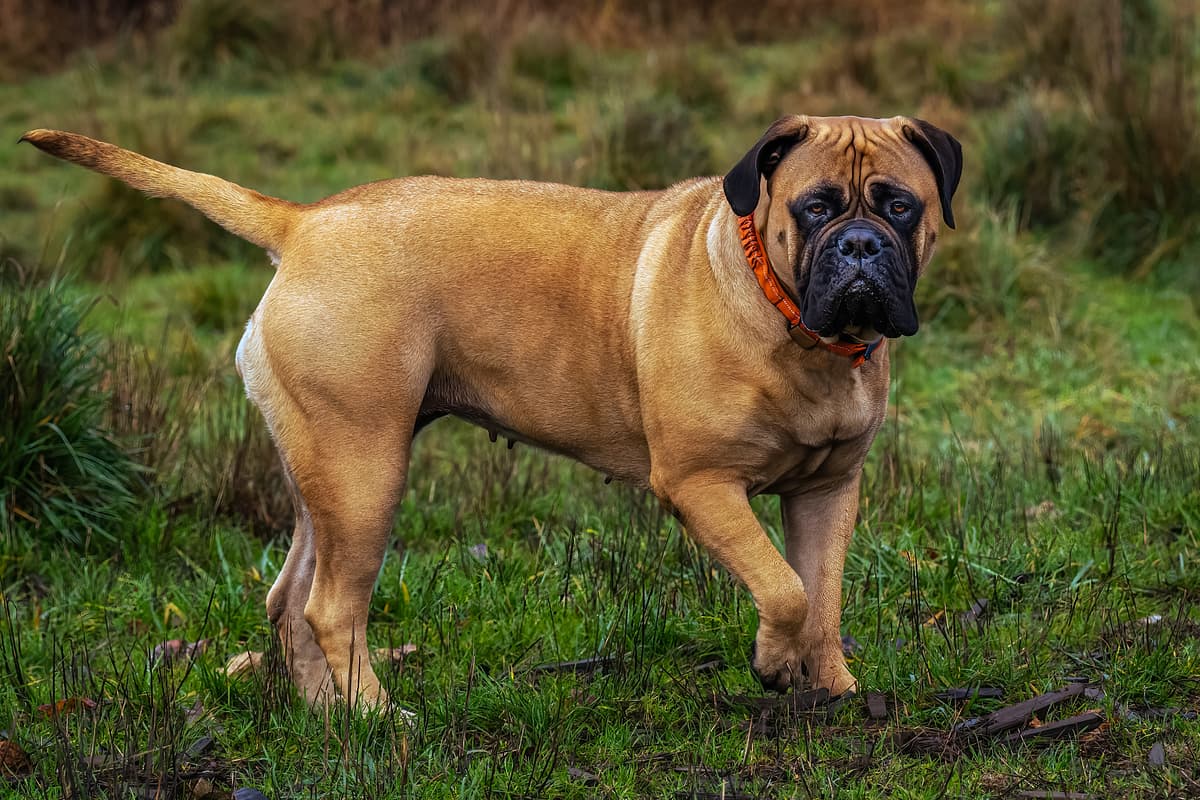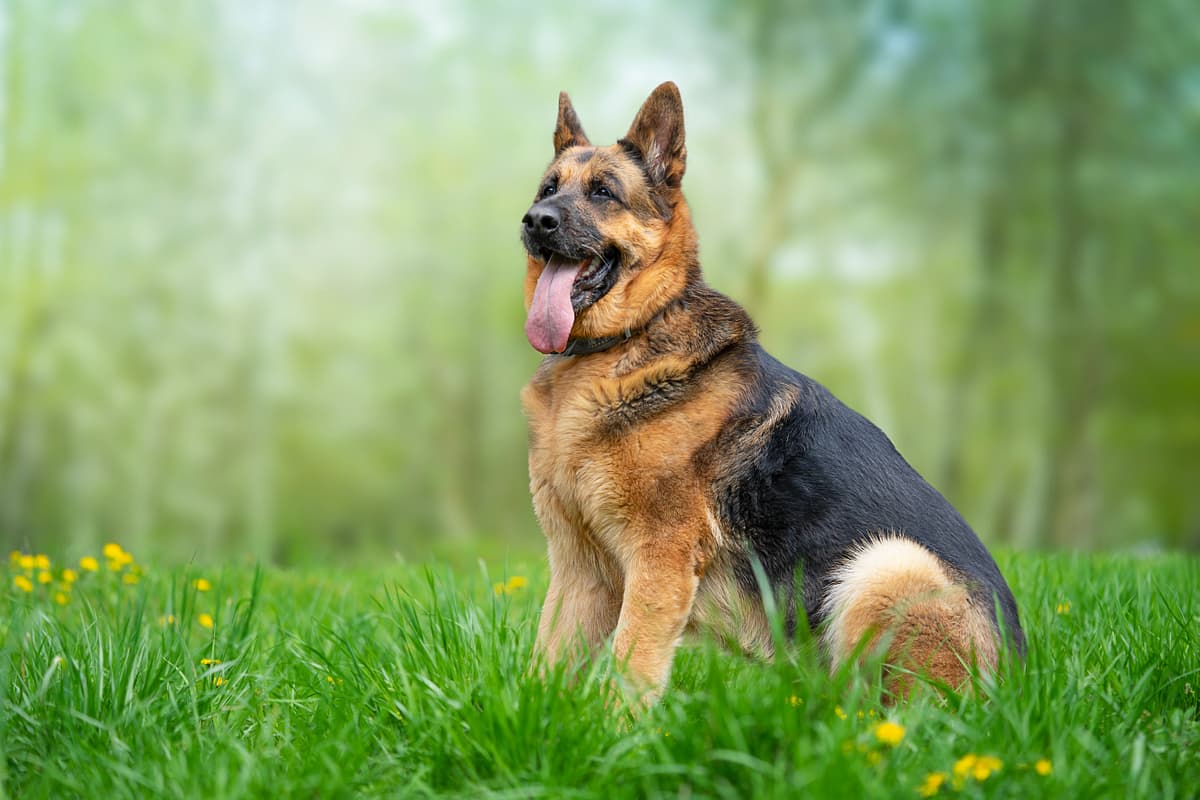Bullmastiff vs German Shepherd
Discover the differences between Bullmastiff and German Shepherd to make the best choice for your situation.
Try different breeds

Bullmastiff
Powerful yet gentle, this loyal guardian offers steadfast protection and warmth to families. Calm under pressure, Bullmastiffs excel as both devoted companions and vigilant watchdogs.

German Shepherd
Confident, loyal, and highly intelligent, this breed thrives as both a devoted family companion and a reliable working partner. Always alert and eager to learn, it adapts to many roles with ease.
Quick comparison
Large
50–59 kg
Short, dense
7–9 years
41–50 kg
Low activity needs
Large
30–40 kg
Double coat, dense undercoat
9–13 years
22–32 kg
High energy
Personality & behavior
Compare the personality traits and behavioral characteristics of both breeds.
Bullmastiff
Gentle and affectionate with family and friends
Learns commands quickly, responds well to training
Generally calm, low activity needs indoors
Enjoys play but not overly excitable
Adjusts well to routine and environment changes
German Shepherd
Warm with family, reserved with strangers
Quick learner, highly trainable and alert
Needs regular activity and vigorous exercise
Enjoys games, interactive and engaging
Adjusts well to new situations and environments
Care needs
Exercise, grooming, and daily care requirements
Bullmastiff
Hip dysplasia, elbow dysplasia
German Shepherd
Hip dysplasia, elbow dysplasia
Suitability
How well each breed fits different living situations and families
Bullmastiff
Challenging for beginners
Bullmastiffs need confident handling and early training for balanced behavior
Manageable with effort
Their size fits apartments but they need daily outdoor walks
Not highly active
Bullmastiffs prefer moderate exercise over vigorous daily activity
Good family companion
Gentle and protective with children when socialized early
Cautious introduction needed
Some Bullmastiffs may be territorial with other pets
Not recommended
They dislike being left alone and may develop separation anxiety
German Shepherd
Challenging for beginners
Needs experienced, consistent training and socialization
Not ideal
Needs space and frequent exercise to prevent boredom
Perfect fit
Thrives with active owners who can provide daily physical and mental challenges
Highly suitable
Loyal and protective, can be gentle and patient with proper socialization
Usually compatible
Can get along with other pets if raised together and well socialized
Prone to anxiety
Dislikes being left alone for long periods and may develop behavioral issues
Breed strengths
What each breed excels at and their best qualities
Bullmastiff
- Loyal and protective family companion
- Calm and steady indoor demeanor
- Strong natural guarding instincts
- Tolerant and patient with children
- Low grooming needs due to short coat
German Shepherd
- Highly intelligent and quick to learn tasks
- Strong loyalty to family members
- Excellent working and service dog abilities
- Protective instincts make them good guardians
- Adaptable to various training activities
Challenges & considerations
Potential challenges and considerations for each breed
Bullmastiff
- Can be stubborn during training sessions
- Prone to drooling and snoring
- Needs early socialization with strangers
- Sensitive to heat and humidity
- Susceptible to joint and hip issues
German Shepherd
- Prone to hip and elbow dysplasia
- High exercise needs require daily activity
- Can develop separation anxiety if left alone
- May be wary of strangers without socialization
- Heavy seasonal shedding requires frequent grooming
Ready to choose your perfect breed?
Learn more about each breed or compare other breeds to find the perfect match for your lifestyle.
Discover more helpful tools
Make use of our other free tools to get the most out of your pet experience
